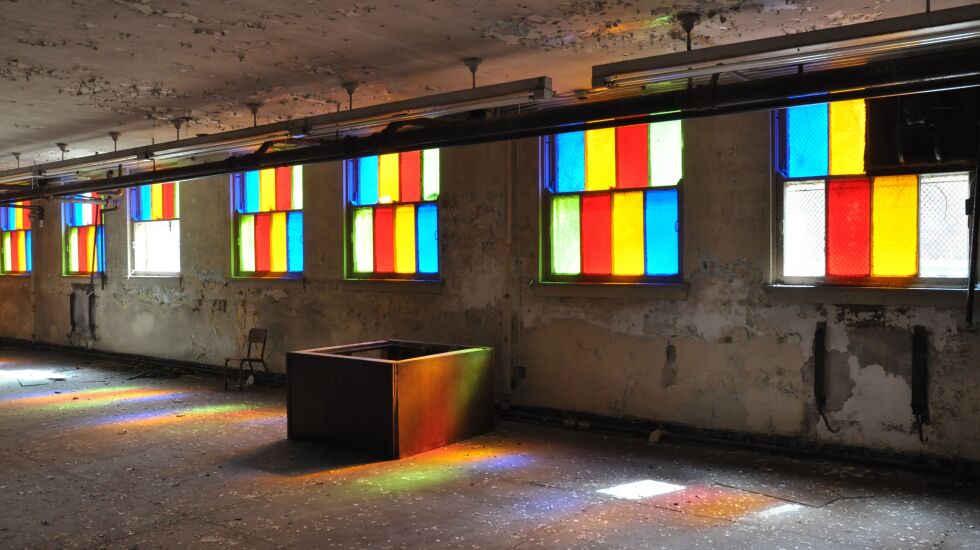At 72nd and Calumet in the Greater Grand Crossing neighborhood, a large brick building has sat vacant for over 20 years. Its purpose was once to educate, as St. Laurence, a Catholic elementary school.
Since its 2002 closure, those visiting nearby Meyering Park had the 40,000 square-foot empty brick building to watch over them.
By the end of 2024, 1353 E. 72nd St. will be transformed into an arts hub by Theaster Gates through the Rebuild Foundation, offering largely free arts and cultural programming. The acclaimed multi-media Chicago artist prevented the demolition of the the art deco and prairie-style building by purchasing it in 2014.
New team members spearheading the programming at the St. Laurence site were announced Thursday. These include Racheal Allen as Nonprofit Operations Strategist, and special collections librarian Heather Hummons.
“Central to the redemption of St. Laurence is to celebrate the artistic lives of the South Side and the larger Afrodiasporic communities,” said Gates, executive director of the foundation, in a press release.
“With the leadership and support of our expanded team, we’ll be able to further our mission of providing creative resources, amenities, and programs to a community that has historically been denied access to them. In the process we’ll be able to connect the South Side’s history to the present while amplifying Black voices and Black art.”
Since the inception of his foundation in 2010, Gates has focused on acquiring vacant buildings and lots on Chicago’s South Side in order to repurpose them into arts-based incubators.

In the interim years, the building has been under construction while Gates raised money and partnered with the University of Chicago organization Place Lab to add paintings crafted by young artists to the windows.

Renovation from the multi-media artist’s ethical redevelopment vision aims to keep the artistic integrity of building.
It will serve as a center for “cultural exploration, entrepreneurship, experimentation and creative education” according to the release.
“Pre-renovation the space looked very similar to what most abandoned spaces would look like,” said Allen. “It was full of debris, kind of dilapidated, but I think there were some architectural elements in this space that showed a tremendous amount of promise.”
Allen will aid in the creation of community-focused programming at the hub. Programming will include art classes, mentorship programs, nonprofit partnerships events and performances.
A central component will also be four archival collections, spearheaded by Hummons.
Among the archival collections are glass lantern slides acquired from the University of Chicago; records from house music pioneer Frankie Knuckles’ personal vinyl collection; and the Edward J. Williams Collection, a collection of racist objects that were previously removed from public circulation, the release detailed.
“This happens to be one of the largest adaptive re-use spaces that [Gates] had in his portfolio,” Allen said. “We’re really just using Greater Grand Crossing as a platform to be able to show that every community deserves this kind of work and these kinds of spaces.”
“It’s probably easy to understate how tremendous or how transformational having a 40,000 square foot space is, in a community like this,” Allen added. “It’s unprecedented.”







